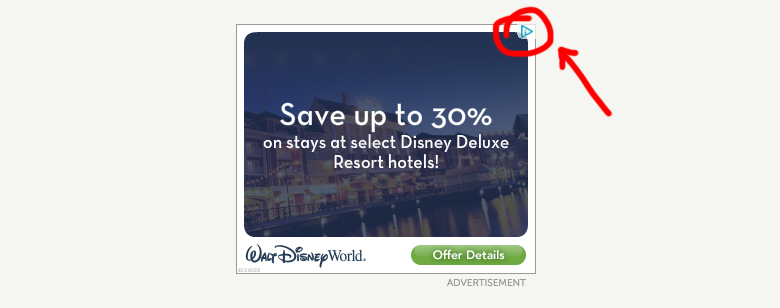Has this ever happened to you? Yesterday, I did a quick search for high-rise skinny jeans. Later, I was on my favorite beauty site, and an ad popped up for… those same high-rise skinny jeans. What?
It was weird enough when the Internet seemed to psychically know my denim preferences, but I really paid attention when I was in my Gmail inbox and an ad appeared for tortoiseshell sunglasses… the kind I was describing to my friend in an email. That night, when I was on yet another website, there were those tortoiseshell sunnies staring back at me again. Creepy.
Retargeting
It’s like your computer is being tapped. It’s called “retargeting,” and here’s how it works: When you browse a site (like the one where I looked for jeans), it drops a little bit of code on your computer called a “cookie.” That cookie will keep showing you ads from the site you visited. (The Gmail thing works a little differently: Google notes how often your emails mention certain topics AND how frequently you Google the same topics, then shows you ads accordingly. Learn more about that here.) It’s nice for advertisers, because they know that if you were thinking about buying something when you first saw it, by the ninth or tenth time you see it, you might be moved to make a purchase. Yeah, okay, I could use a distressed pair to round out my wardrobe…
Pixels
Marketers start retargeting by placing what’s called a “pixel” on their site. You can’t see it but it sees you, and once you visit a pixel-loaded site and perform a specified action, such as placing an item in your cart, the pixel triggers the aforementioned cookie to drop on you. (I wish cookies would drop on me more often, but that’s another blog post.) Then, whenever you visit an ad network to which the marketer has subscribed, that network recognizes the cookie on your computer and shows you the targeted ad. The ad will generally keep reappearing until a set expiration date, or until you make a purchase.
AdChoices
Considering that retargeting can increase ad response by up to 400% (according to this marketing site), it’s in marketers’ best interest to keep us all feeling okay with it. That’s why a group called The Digital Advertising Alliance got together to create AdChoices. Chances are you’ve seen the little triangle with the “i” in it. It tells you the ad is based on retargeting, and gives you the option to turn it off by clicking the icon (not the ad, itself). Advertisers can choose to opt in to AdChoices. Of course, you’ll also be helping them by turning off the ads you’re not really interested in seeing—so they don’t keep paying to display them. Everybody wins… ish.
What they know
Should you be worried about retargeting, and who knows what you’re shopping for?As much as it can feel like Big Brother (of shopping) is watching when this happens to you, the good news is that no one is after you personally. Though it may feel a bit shady, the advertiser who’s tailing you can’t pick up your address, name or any other personally identifying information. They also can’t get into your computer and sniff around (phew). What they do know is where and when you’ve been browsing, and what you’ve been looking at. (So if you naïvely clicked on a dog toy that turned out to be a sex toy, future searches could get very 50 Shades, very fast.)
How to quit them
There are quick ways to get that sticky advertiser off your digital tail. First, go into your browser’s settings and click “Preferences > Clear Cookies.” Downside: most sites, including Gmail, work with cookies, so you may find your most-frequented sites have “forgotten” your sign-in info and logged you out. A less inconvenient approach? In your browser’s privacy settings, there’s a “Do Not Track” button. Activate it, and companies will get the message that you don’t want them to follow you… though that doesn’t always ensure that they’ll comply. If you’d like to know who’s tracking you at any given time—and block them—try a privacy-enhancing browser extension like Ghostery. It’s free, will instantly reveal if anyone’s tailing you in the background, and give you the option to stop them.
Although your browser can turn off cookies entirely, I wouldn’t recommend doing that. You’ll be stunned to see how important cookies are to your Internet experience, as they’re the way that any site remembers anything about you—your log-in, your address, your credit card number or your browsing history. If you’re one of those people who exclusively use cash because they’re afraid of credit card fraud, then turning off cookies might seem reasonable. For the rest of us, it’s just a pain.
Overall, retargeting isn’t so much threatening as it is one more tiny chip away at your online privacy. Advertisers would argue that it’s beneficial to the consumer to see ads that are custom-curated just for them.
Where do you stand on the issue? Do targeted ads bother you, or do you prefer them to random advertising? Let me know in the comments!



